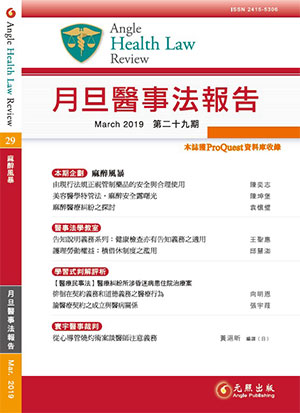終生不能自理的畸嬰安樂死及其消極治療的倫理分析【月旦時論】 試閱
Ethical Analysis of Euthanasia and Negative Treatment of Abnormal Baby in Life
對嚴重畸形、終生不可能生活自理的嬰兒,是否可以主動採取安樂死,或者消極治療使其自然死亡,在倫理和法理上,不僅涉及親子雙方的基本人權,很明顯地還會涉及社會經濟負擔、人口品質、整個社會的生命倫理評價等問題。從倫理分析,應當區分畸嬰安樂死和消極治療畸嬰,前者為主動的非治療措施,後者為合法的治療措施。近期立法應首先規定畸嬰消極醫療措施的具體條件和程式。在立法上認可成年人安樂死後,再確認畸嬰安樂死合法,因畸嬰的消極治療涉及的法理更加複雜。未來制定中國民法典應當明確肯定其消極治療合法。
Whether a baby with severe malformation and lifelong self-care can take the initiative to take euthanasia or passive treatment to let him die naturally. In ethics and jurisprudence, it involves not only the basic human rights of both parents, but also the society as economic burden, population quality, and bioethical evaluation of the entire society. On the ethical analysis, it is necessary to distinguish between abnormal euthanasia and negative treatment of abnormal infants. The former is an active nontherapeutic measure and the latter is a legal treatment. Recent legislation should first specify the specific conditions and procedures for negative medical measures for abnormal infants. After legislating the euthanasia of adults, it is confirmed that the euthanasia of the babies is legal, because the legal treatment involved in the negative treatment of the babies is more complicated. In the future, the Civil Code should be clearly affirmed that its negative treatment is legal.
145-162






